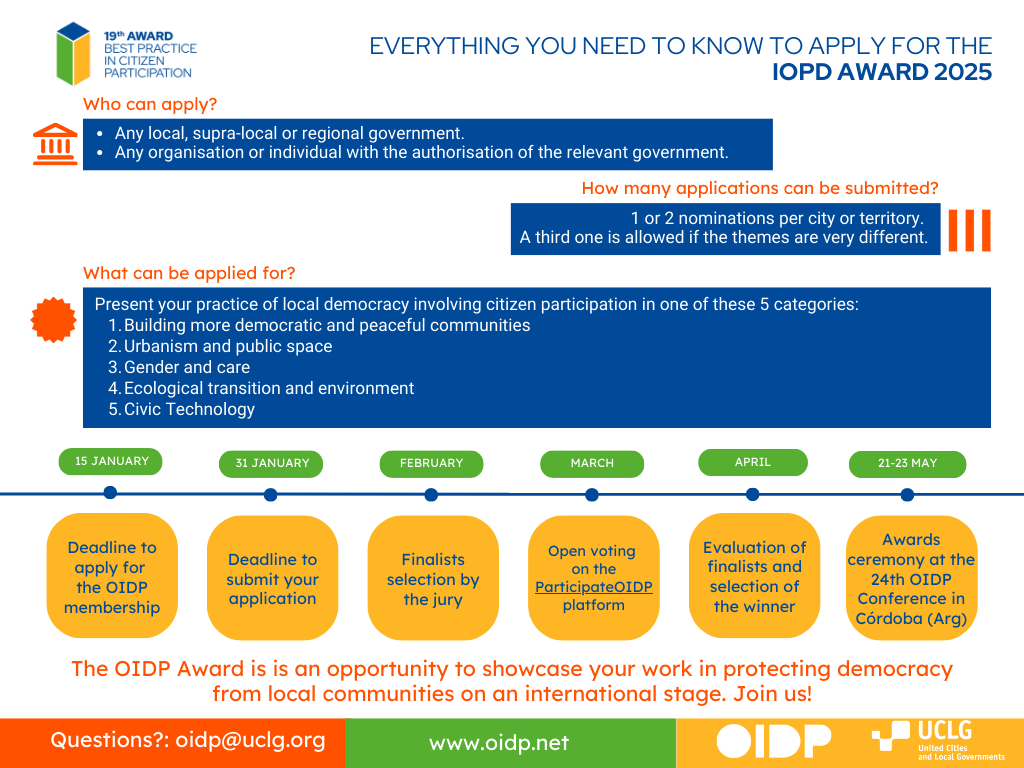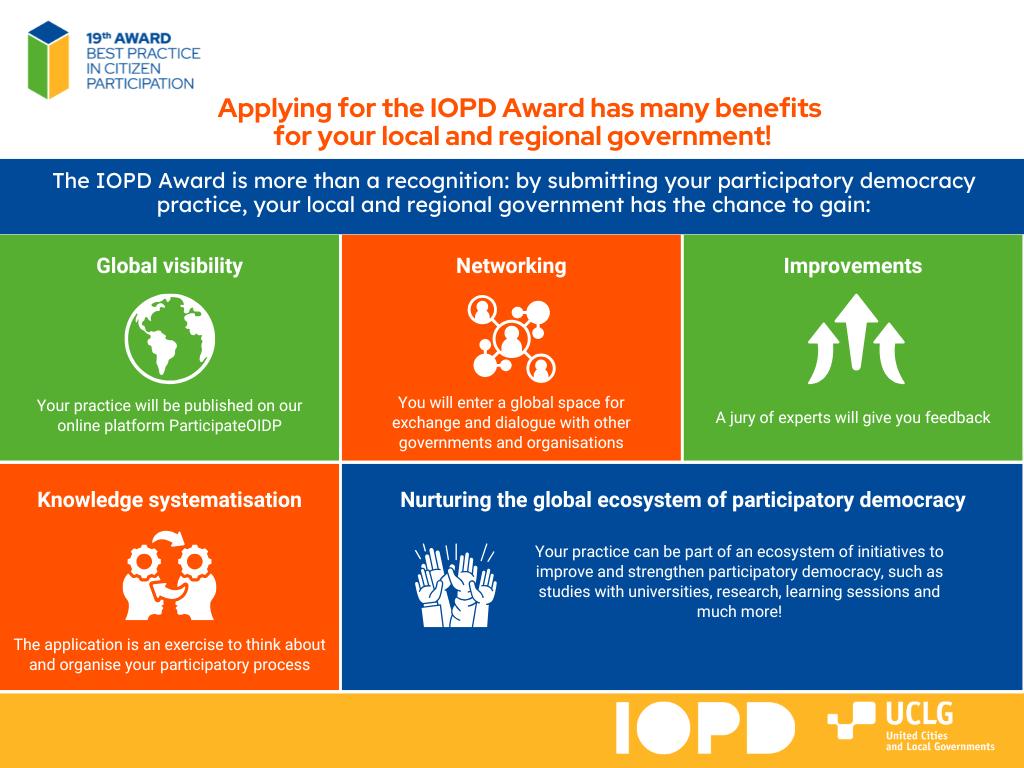
The OIDP Award “Best Practice in Citizen Participation” is an initiative of the OIDP and United Cities and Local Goverments (UCLG) to recognize successful experiences of local and regional governments in the field of participatory democracy, citizen deliberation, community empowerment, open government, democratic innovation, and public participation.
The OIDP Distinction is your opportunity to showcase your work for a more inclusive and diverse participatory democracy on an international level! Be part of it!


If you are not yet part of our network, become a member (without any financial obligation) by filling in this form before 15 January 2025.
You must choose in which category you want to submit your practice:
A) Building more democratic and peaceful communities
Any action, public policy, or practice that seeks to improve democracy, guarantee human rights,
generate trust among citizens, and build peace through civic education, open government,
transparency, and renewal of institutions.
B) Urban management and public space
Any participatory, deliberative and co-creative action on public space and urban or
territorial development.
C) Gender and care
Any policy to promote gender equality, the inclusion of specific groups commonly
neglected (children, young people, elderly, diverse gender identities...), and ensuring
public service provision to all.
D) Ecological Transition and Environment
Any participatory, deliberative or co-creative action to protect the environment and
face the climate emergency guaranteeing social justice.
E) Civic Tech
Participation, deliberation or co-creation through digital platforms, virtual processes and
Artificial Intelligence.
Submit your proposal by 31 January 2025.
A jury of experts, organised and divided according to the categories will evaluate the applications and choose the finalists for the award. These will be 50% of the applications received, with a maximum of 40 applications.
All finalist applications will be published on the ParticipateOIDP online platform with a summary, links, and images. Open voting will be available for one week. Everyone is welcome to vote for their favourite practice! To participate, you must register on the platform. Choose a minimum of 5 nominations to have a valid vote.
In parallel, a jury of experts will also evaluate in detail the final candidates, reading all the documentation. Finally, once the popular vote is closed, the jury will meet to deliberate on the winner, taking into account the open vote.
The delivery ceremony will take place during the 24rd OIDP Conference in Córdoba (Argentina), May 21, 22 and 23, 2025. The OIDP Secretariat will launch a digital publication compiling all the submissions.

